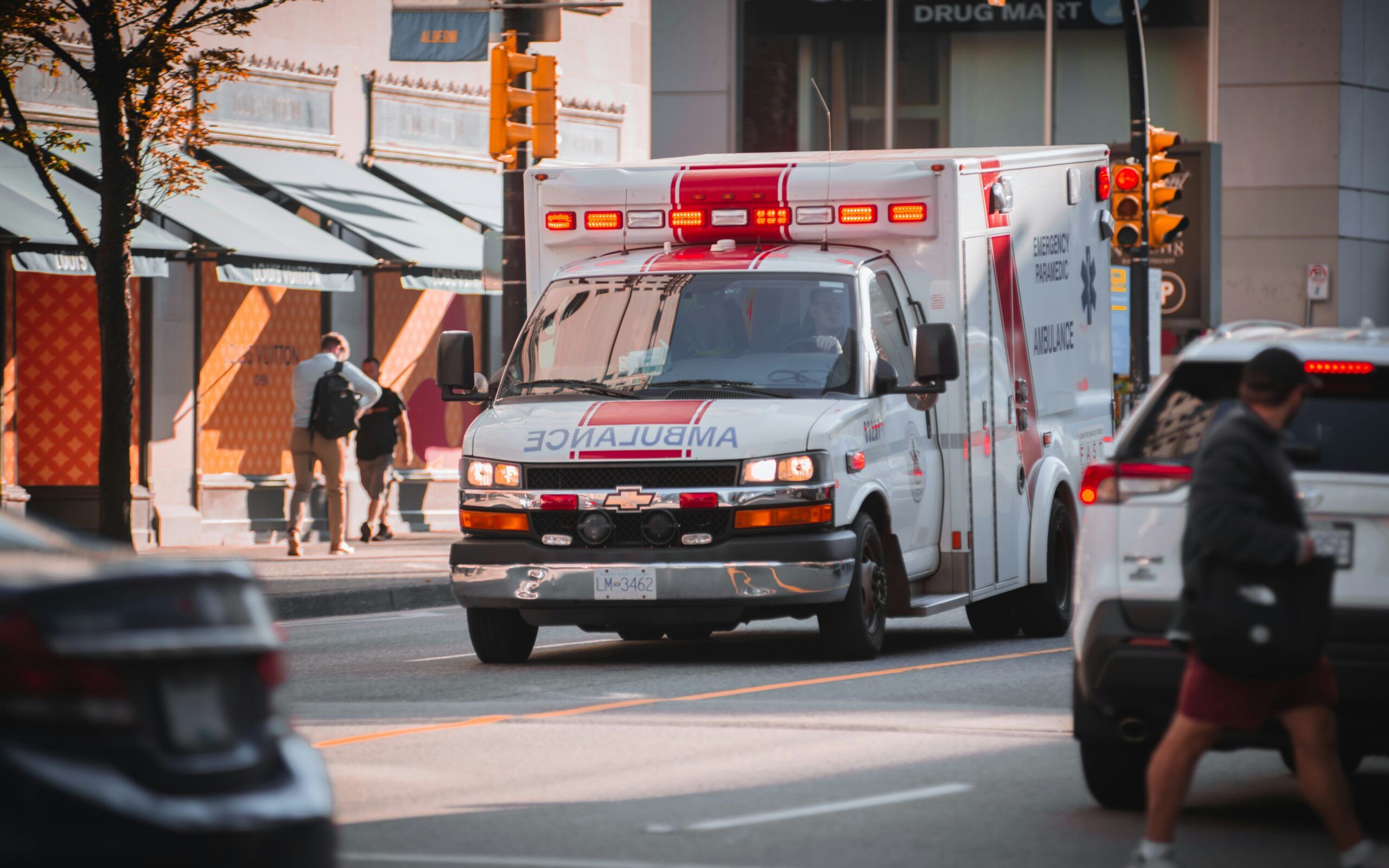
Signs You’re Destined to Be an Emergency Medicine Doctor
Are you built for the Emergency Department? We reveal the 6 signs that prove you’re destined to succeed in emergency medicine.

If you’ve ever watched The Pitt on HBO Max and thought “I could do that,” hold on—because there’s a massive difference between being entertained by ER chaos and actually thriving in it.
Actual emergency medicine doctors have praised The Pitt as one of the most medically accurate shows ever made. It doesn’t sugarcoat the reality, but here’s what the show can’t tell you: whether you’re actually built for emergency medicine.
The key to excelling in any specialty isn’t GPA or test scores—it’s whether your fundamental personality and core skill set align with it. Today, I’m revealing five signs that will tell you whether you’re built to succeed in the Emergency Department or destined for burnout.
The first sign you’re built for emergency medicine is that chaos doesn’t drain you—it energizes you.
Unlike the focused environment of the operating room or the steady, scheduled appointments of a primary care doctor, the emergency department is a constant whirlwind. Here, you’re expected to juggle everything at once. Expect high-pressure moments straight out of The Pitt: multiple patients arriving simultaneously, priorities shifting every few minutes, and constant interruptions pulling you in entirely different directions.
That intensity is exciting for some, and a nightmare for others. If you rely on quiet, order, and predictability, the ER will burn you out in no time. On the other hand, if the chaos leaves you amped up and unwilling to clock out, then you’ve found your specialty.
But thriving in that chaos requires something else—you need to love variety… which brings us to our second sign.
Emergency medicine doctors are the ultimate generalists. They’re treating heart attacks, psychiatric crises, pediatric traumas, and kidney stones all in the same shift. They know a little bit about everything.
Many say emergency medicine doctors are “Jack of all trades, masters of none,” except this isn’t quite true. They specialize in breadth and acuity, meaning they are the masters of resuscitation, stabilization, and rapid critical decision-making across organ systems and age groups. Think airway management, hemodynamic stabilization, and initial trauma and sepsis resuscitation.
The stereotypical EM applicant is the medical student who loves every rotation. If you’re having trouble narrowing down your options, I highly recommend SpecialtyQuiz.com, which aligns your preferences and strengths with a list of ideal medical specialties.
Doctors who thrive in emergency medicine generally can’t settle on a single specialty and get restless sitting still. If that’s you, pay attention.
If you’re someone who wants to become the world’s expert in one narrow field, emergency medicine will feel frustratingly shallow. It’s not uncommon for specialists to be frustrated with emergency doctors; an orthopedist might critique a splint, a cardiologist might question a cath lab activation, or a surgeon might nitpick the workup for abdominal pain.
Specialists focus on depth, precision, and long-term outcomes; EM doctors specialize in speed, stabilization, and buying time for definitive care.
The doctors who prosper here are those energized by constant mental pivoting.
Next, are you quick and decisive under pressure, even with incomplete information?
Here’s what that looks like. A patient walks in complaining of chest pain. It could be a heart attack. It could be anxiety. It could be heartburn. You have minutes—not hours—to decide on an immediate treatment plan that could be the difference between life and death.
The doctors who struggle in the ER are those who need total certainty before making a call. The ones who succeed are those who can rapidly synthesize limited information, make a decision, and commit to a plan even if they’re not 100% sure.
To make it here, you need to channel your inner Dr. Robby. You need to be someone who constantly makes split-second calls with incomplete data, knowing that waiting is simply not an option when a life is on the line.
But quick thinking alone isn’t enough. You also need to handle something most doctors can’t…
If you’re destined to be an emergency medicine doctor, you need to be able to manage patients who are at their absolute worst.
You’ll deal with aggressive patients, violent situations, people high on narcotics, and mental health emergencies. And unlike other specialties in which physicians can decline patients or refer them elsewhere, you can’t turn anyone away.
The Emergency Medical Treatment and Labor Act, or EMTALA, legally requires you to see everyone who walks through those doors. Everyone.
That means verbal abuse becomes routine, and you’re at a higher risk of physical harm from patients than almost any other specialty. Beyond the immediate danger, you will also witness the same preventable tragedies on repeat, often rooted in larger social crises like homelessness, addiction, and domestic violence.
This sustained exposure to trauma and abuse can eventually wear you down mentally and emotionally. The doctors who last are those who can maintain compassion without taking the darkness home every single night.
And it shows in the numbers. Emergency medicine has the highest burnout rate of any specialty at 63%. We break down exactly why in our specialty burnout rankings video.
But it’s not all darkness. There’s another side to emergency medicine that appeals to certain personalities.
And that’s being comfortable with procedures. A lot of them.
Emergency medicine is hands-on, but not surgical. You’ll still be doing more procedures than most non-surgical medical specialties.
Here’s what that looks like: incision and drainage of abscesses, lumbar punctures, suturing lacerations, reducing fractures, and thoracotomies. Some would say you’re in that sweet spot of being more procedural than internal medicine, but less than surgery.
The key difference is that these procedures are a means to an end. You’re stabilizing patients, not perfecting a single surgical technique over decades.
If you love being hands-on but don’t want to spend 5 to 7 years in surgical residency, or if the idea of doing highly complex but repetitive procedures for the rest of your career doesn’t excite you, then emergency medicine might be a better fit. You’ll perform quicker procedures with more variety, albeit with less complexity or finesse.
Just know that closure is rare. You might stabilize dozens of patients in a shift, but never know what happened to any of them after that. Which brings us to our final sign…
You’re comfortable never seeing patients again.
When a patient comes in with a heart attack, your role is to stabilize them and keep them alive through the most dangerous moments. After you hand them off to cardiology, their story continues, but you’re no longer part of it. You might never know whether they went to the cath lab, whether the intervention worked, or whether they made it. And you certainly won’t see them at follow-up appointments, and whether they changed their diet or kept taking their medications.
For some doctors, this is freeing. No long-term management, no chronic disease coordination, no longitudinal relationships to maintain. For others, it feels incomplete, like reading a book but never getting to the last chapter.
Psychologists call these “open loops”—unresolved stories that the brain naturally wants to close. In emergency medicine, you have to get comfortable leaving those loops open. You stabilize the crisis, set the patient on the best possible trajectory, and trust that the system and the specialists will carry it forward. You rarely see how the story ends—and that’s by design.
If you’ve been watching The Pitt and thinking “this looks intense,” you’re right. But does that intensity excite you or fill you with dread?
You won’t know which camp you’re in until you’ve actually worked in different specialties. That’s why getting clinical exposure as early as possible is critical to making the right decision.
If you’re unsure whether emergency medicine or any specialty is right for you, we’ve created a complete guide on how to choose your ideal medical specialty. You’ll learn the exact questions to ask yourself and how to systematically compare and contrast each specialty with your interests, skills, and priorities.

Are you built for the Emergency Department? We reveal the 6 signs that prove you’re destined to succeed in emergency medicine.

If you have a low GPA and want to be a doctor, all hope is not lost. Here’s how you can get accepted to medical school with a low GPA.